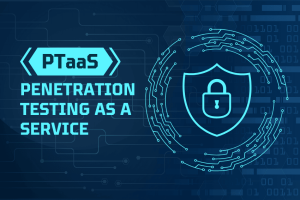Leadership potential is recommended as a viable solution to support career growth. Leadership entails the general management of work teams and self and others’ motivation, decision-making, and problem-solving without fear.
However, it is critical to state that in order to receive the status of a good leader, one has to have access to a set of general professional competencies, such as communication and problem-solving skills, working conditions, and other abilities.
As far as leadership is concerned, it has to be pointed out that one has to be passionate and engaged in the process of gaining knowledge together with practising leadership potential, asking for a piece of advice as is presented adequately in the context below.
During management training programs, people are given effective instruments required for leadership skill building. Leadership capacity not only creates self-employment but also creates the ability to bring change within organizational contexts, making them essential commodities in any discipline.
Introduction to Leadership in Management

Management is one of the crucial organisational assets that enables leadership to guide performances towards a desired end result. In management, leadership is not about telling and deciding but about the art of leading people, coordinating teams and finding solutions. It is through focusing and directing with the spirit of the team that a competent leader ensures the work culture of a team and ensures that the goals and objectives of the team of the organization are in parity.
The senior management leadership encompasses efficiency in emotion recognition, both in terms of timing and accuracy, adaptability and capacity to think strategically to match modern-day dynamism and competitive environment in business.
Management courses, these approaches have a great deal to offer to enhance commentary on the principles of leadership. These courses provide a structured approach to present critical areas of leadership that include conflict navigation, decision-making, and formation of a team.
They are able to understand best practices in leadership and plans through simulation with papers/cases, role-play exercises and professional advice. Management courses thus equip the professional with the skill and competency they needs to address various challenges in organizations and spearhead change.
Also Read – The 5 Ps of Leadership: Decoding Leadership Excellence
What is Leadership Potential?
Leadership readiness is, therefore, a person’s ability to acquire and display specific characteristics and behaviours that are essential in leadership. We are not only talking about the current competencies but also the future trends with regard to the development of a successful leader.
- Vision and Strategic Thinking: The prospect of perceiving the general context of the activity and the development of plans to work on large-scale objectives.
- Emotional Intelligence: The ability to control one’s own emotions and to properly communicate with individuals in their environment.
- Communication Skills: The ability to communicate effectively, to be persuasive with the team, and to be as open as possible.
- Adaptability: Tolerance to change and having a positive attitude while handling change in the organization.
- Decision-Making: One of the most important tasks related to the process of problem-solving and adequate behaviour in a particular context.
- Motivating Others: Motivating group members either in general or in specific ways so as to get the best of them.
- Growth Mindset: Showing the desire to acquire knowledge, education and personal development.
Leadership is required when it comes to the motivation of a team towards the achievement of organizational goals and the ability to promote innovation.
How to Unlock Your Leadership Potential?
Embrace Continuous Learning
There are different leadership competencies that change through learning as one gains more experience and increased knowledge. Engage in training programs and workshops and ask for mentorship in order to acquire some skills.
- Example: The current CEO of Google, Sundar Pichai, education showed that one has to learn progressively through opportunities like engineering and product management.
- Reason: Keeping current with trends in the field improves decision-making and future responsiveness.
Emotional intelligence should be grown
Great leaders know how to operate in a low and constructive emotional state and develop positive relations with people.
- Example: Microsoft’s corporate culture changed for the better when Satya Nadella became the CEO of the corporation when he emphasized a people-first strategy.
- Reason: Emotional intelligence promotes trust and teamwork, two critical factors that are crucial when working with teams.
Seek Opportunities to Lead
Be proactive in your current position, whether by being a project leader or by being a trainer.
- Example: In her early years, Sheryl Sandberg, Meta’s COO, assigned herself demanding positions that revealed her leadership skills.
- Reason: Practical leadership responsibilities increase self-estimation and sharpen decision-making strategies.
Foster a Growth Mindset
Develop a PA to confront the difficulties and accept the losses as fruitful experiences.
- Example: One example of coming up with an idea and battling through thick and thin is Elon Musk, who had to endure crises at Tesla Motors in its early days and bounce back up.
- Reason: Being able to have a growth mindset always leads to innovation and prolonged success.
Developing leadership talent entails practice, learning and commitment, which eventually opens the door to positive leadership.
How do Leadership Skills Contribute to Career Growth?
Improved Problem-Solving Capabilities
Leadership competencies allow an individual to understand a problem and determine an appropriate course of action that will be best for an organization.
- Example: Leadership expertise can enable managers to address various work and staffing issues and even receive appreciation and support from senior management.
- Impact: This puts them in line for promotions and alternative responsibilities.
Building Stronger Teams
Successful teams do better because the leaders enable them to do that.
- Example: Any officer or team leader who builds up team togetherness and performance will be considered for positions that demand elevated levels of responsibility.
- Impact: Effective leadership presents the possibility of being in charge of bigger projects together with groups.
Creating Strategic Vision
Leadership prepares people to have a broader focus that enables them to bring other people’s sub-activities in an organization in conformity with business organisational goals.
- Example: Any professional who makes direct input for organization development through processes and strategies is considered a valuable commodity.
Business Management Courses and Career Growth
Business management courses in India emphasise skills, application, involvement, expertise and leadership. Such programs adopt case analysis, role plays, and models acting out scenarios in order to inculcate decision-making ability and strategic thinking. Businesses learn ways to be efficient in engaging with a diverse population, possible approaches to addressing frustration, and tips on how to succeed in positions of leadership. Developed through focused training, supplemented with rigorous class instruction, these courses equip a person for success and enable him/her to step into higher leadership positions without hesitation.
Summed Up
That is why leadership opportunity unlocking is the process through which personal and company transformation happens. If the person gains certain abilities in him or in herself/himself, for example, in terms of strategic thinking, communication, interpersonal emotional intelligence and adequate decision-making, then this person will be ready to lead other people.
Therefore, we conclude with the assertion that leadership is a process that one learns through on-the-job training and volunteering. Business management courses are some of the most popular courses which empower an individual with skills and knowledge to optimise these skills to produce effective leaders.
There is no doubt that with leadership development, people anticipate better team performance, employee innovation, and the goals of the projected company. It is, however, necessary to develop leadership potential as a way of expanding other career aspects and, hence, individual career success.


